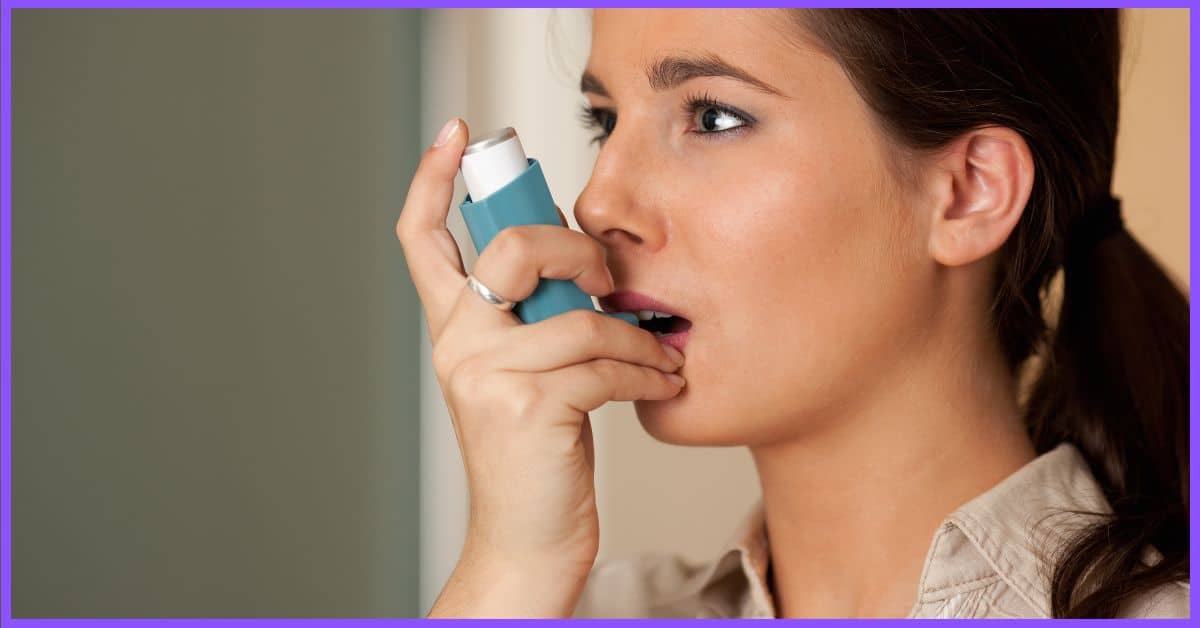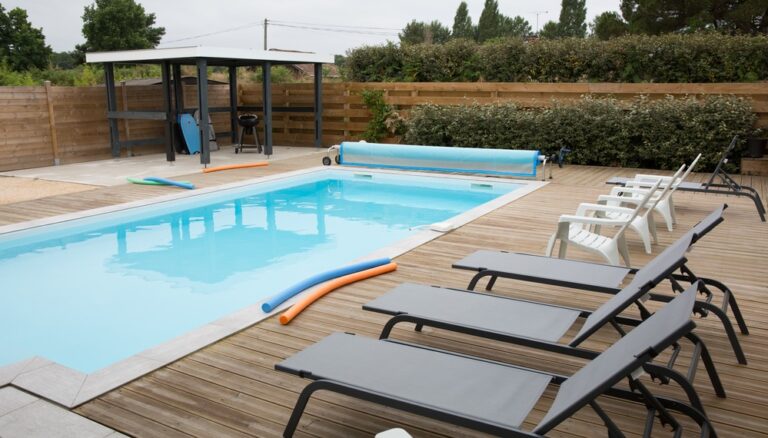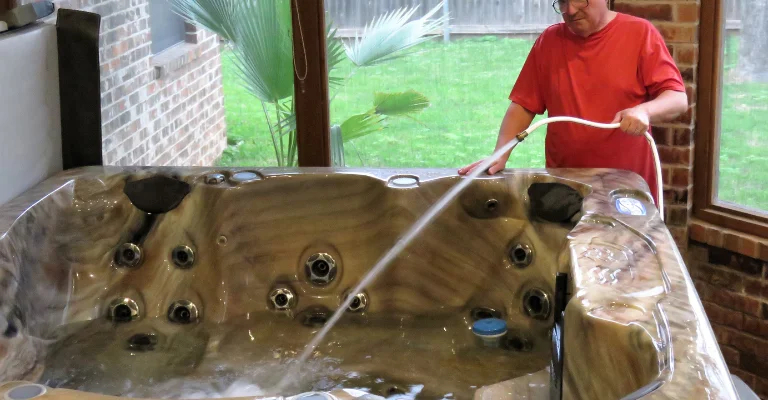15 Hot Tub Benefits for Asthma Relief: Breath Easy with Hydrotherapy
Discover the excellent Hot Tub Benefits for Asthma Relief. Learn how hydrotherapy in hot tubs can help you breathe easier. Relax, relieve Inflammation, and improve your overall well-being. Trust the soothing power of hot tubs!
Introduction
Are you ready to learn about something super cool? We will talk about hot tubs and how they can help kids and grown-ups who have trouble breathing because of asthma. That’s right! We will explore 15 excellent benefits of hot tubs that make breathing easier. So, let’s dive right in!
What is Asthma?
Asthma is a condition that affects some people’s ability to breathe correctly. When someone has asthma, their airways get tight and narrow, making it hard for air to flow in and out. It can make them feel like they’re trying to breathe through a tiny straw instead of a nice, wide pipe. But don’t worry because hot tubs can help!

How Does Asthma Affect Breathing?
Imagine you have a balloon, and you try to blow air into it. But, oh no! The balloon has a tiny hole, and the air can’t get in correctly. That’s what happens when someone has asthma. Their airways have these little holes, making it difficult for the air to flow freely. They might start coughing, wheezing, or feeling like they can’t catch their breath.
Symptoms of Asthma
Asthma symptoms differ among individuals and can happen in asthma attacks or flare-ups. Here are some common signs to watch out for:
- Wheezing: If you hear a whistling or squeaky noise while inhaling or exhaling, it could indicate an underlying health issue.
- Chest Tightness: A sensation of pressure or constriction in the chest.
- Shortness of Breath: Difficulty breathing, feeling of not getting enough air.
- Coughing: Often worse at night or early in the morning.
Causes and Triggers
Asthma can be triggered by various factors, including:
- Allergens: Substances that cause an allergic reaction, such as pollen, dust mites, pet dander, and mold.
- Air Pollution: Outdoor and indoor pollutants, such as smoke, chemical fumes, and strong odors.
- Respiratory Infections: Viral or bacterial infections that affect the respiratory system.
- Exercise: Physical activity, especially in cold or dry environments.
- Emotional Factors: Intense emotions, stress, and anxiety.
- Occupational Exposures: Certain substances encountered in the workplace.
- Genetics: Family history of asthma or allergies.
- Tobacco Smoke: Both active smoking and exposure to secondhand smoke.
Diagnosis
Accurate diagnosis of asthma involves a comprehensive evaluation of a patient’s medical history, symptoms, physical examination, and lung function tests. By considering these factors, healthcare professionals can determine the severity of asthma and develop an effective treatment plan.
Treatment Options
Asthma treatment aims to control symptoms, prevent flare-ups, and improve the overall quality of life for individuals with this condition. Here are some commonly employed treatment options:
- Medications: Inhalers and oral medications that help manage asthma symptoms and reduce inflammation in the airways.
- Lifestyle Modifications: Avoiding triggers, maintaining a healthy weight, and regular exercise under medical guidance.
- Allergy Immunotherapy: In some cases, allergen immunotherapy may be recommended to desensitize the immune system to specific allergens.
- Education and Action Plans: Develop an asthma action plan, which outlines steps to take during an asthma attack, and educate patients about self-management techniques.
Prevention and Management
While asthma cannot be cured, it can be effectively managed to minimize its impact on daily life. Here are some preventive measures and management strategies:
- Identify and Avoid Triggers: Recognize and avoid allergens or irritants that can trigger asthma symptoms.
- Regular Medical Check-ups: Visit healthcare providers regularly to monitor asthma control and adjust treatment plans as needed.
- Monitor Lung Function: Use a peak flow meter or a spirometer to monitor lung function and detect changes early.
- Follow the Asthma Action Plan: Ensure that individuals with asthma clearly understand their action plan and follow it diligently.
15 Hot Tub Benefits for Asthma Relief:
Hot tubs can help ease the symptoms of asthma by improving lung function and reducing inflammation. The warm water and steam can also soothe the airways and loosen mucus.
However, some people may experience adverse effects from the chemicals or temperature of the water, so it is important to consult a doctor before using a hot tub for asthma relief.
1: Warm and Moist Air
Do you know when you stand in a steamy bathroom after a warm shower? It feels like breathing in a cloud, right? Well, hot tubs have warm and moist air too! Living in this cozy air helps to soothe our airways and makes them feel happy and relaxed.
2: Relaxation
Have you ever felt stressed or worried? Sometimes, our bodies and minds can get tired from all the hustle and bustle of life. But spending time in a hot tub is like taking a break in a secret hideaway. The warm water and gentle bubbles make us feel calm and relaxed, like floating on a fluffy cloud!
3: Opening Airways
Remember those tiny holes we talked about in our airways? When we soak in a hot tub, the warm water works its magic and helps those holes open wider. It’s like giving our airways a little stretch and making it easier for the air to flow smoothly.
4: Reducing Inflammation
Sometimes, our airways get all red and swollen when we have asthma. But guess what? Hot tubs can help with that too! The warm water in the hot tub helps calm the Inflammation and makes our airways feel better. It’s like giving them a nice drink to cool down when they’re feeling hot and bothered.
5: Loosening Mucus
When we have a cold or asthma, our bodies produce this sticky stuff called Mucus. It’s like the yucky boogers that come out when we have a runny nose. But don’t worry because hot tubs can help eliminate that too! The warm water helps to loosen up the Mucus, so it’s easier to cough or blow it out. Gross, but super helpful!
6: Improved Blood Circulation
Our bodies have a unique blood circulation system that helps all body parts get oxygen. When we soak in a hot tub, the warm water allows our blood to flow better. It’s like a gentle massage for our insides, ensuring everything works just right.
7: Strengthened Immune System
Did you know that our body has special soldiers called the immune system? They protect us from getting sick and fight off all the harmful germs. When we soak in a hot tub, the warm water boosts our immune system, making it stronger and better at keeping us healthy. It’s like giving our soldiers extra superpowers!
8: Better Sleep
Sleeping is like recharging our body batteries. And sometimes, asthma can make it hard to get a good night’s sleep. But guess what? Hot tubs can help with that too! When we soak in a hot tub before bedtime, the warm water helps us relax and makes us feel cozy and sleepy. It’s like a lullaby for our bodies!
9: Stress Relief
Have you ever felt stressed or worried? It’s like having a little monkey jumping on your back, right? But the monkey hops off and runs away when we spend time in a hot tub. The warm water and gentle bubbles make us feel calm and peaceful, melting away all the stress and worries. It’s like having our little oasis of happiness!
10: Allergy Relief
Sometimes, our bodies get all sneezy and itchy because of allergies. But hot tubs can come to the rescue! When we soak in a hot tub, the warm water helps to wash away all the pollen and dust that make us feel yucky. It’s like taking a refreshing shower that makes our allergies disappear.
11: Improved Lung Capacity
Our lungs are like special balloons that help us breathe. When we soak in a hot tub, the warm water makes our lungs feel happy and healthy. It’s like giving our lungs a little workout, strengthening them, and helping us breathe even better.

12: Overall Wellness
Hot tubs are not just about helping with asthma. They are like little wellness machines that make our whole body feel great! Spending time in a hot tub is like giving ourselves a special treat that boosts our mood, helps our muscles relax, and makes us feel amazing inside and out.
13: Fun and Enjoyment
Jumping into a hot tub is like jumping into a big bowl of fun! We can splash around, play games, and have fun with friends and family. It’s like having our private water park right in our backyard. And the best part? We can do all of this while also getting excellent benefits for our asthma!
14: Bonding Time
Have you ever heard the word “bonding”? It means spending memorable time with the people we love and strengthening our relationships. It’s like creating magical memories together when we hang out in a hot tub with our family or friends. We can talk, laugh, and have heartwarming conversations while enjoying the warm water. It’s like sprinkling extra love and happiness into our lives.
15: Quality Family Time
Family time is super important; hot tubs can make it even more special! When we all gather in a hot tub, it’s like creating a cozy nest to relax and have fun together. We can share stories, tell jokes, and enjoy each other’s company. It’s like making a treasure trove of precious moments we’ll remember forever.
Remember, while hot tubs can offer potential benefits for asthma relief, it’s essential to confer with a healthcare expert before incorporating them into your asthma management plan.
What is Hydrotherapy?
Hydrotherapy is a big word that means using water to make our bodies feel better. It’s like giving ourselves a special water treat! And one of the most fun ways to hydrotherapy is by hopping into a hot tub. It’s like having a mini swimming pool that’s all warm and cozy.
How Does Hydrotherapy Work?
Now, let’s get into the exciting part! Hot tubs have magical powers that can help people with asthma feel better. When we bathe in a hot tub, the warm water surrounds our bodies, and it’s like getting a big, gentle hug.
This cozy hug helps our airways relax, just like when we get a warm blanket when we’re feeling chilly. It also helps to open the tiny holes in our airways, making it easier for the air to come in and out. For more about Clothing etiquette.
Summary:
Wow, we’ve learned so much about hot tubs and how they can help people with asthma breathe easier! Remember, hot tubs have warm and moist air that soothes our airways. They help open our tiny airway holes, reduce Inflammation, and loosen Mucus.
Hot tubs also improve blood circulation, strengthen our immune system, and give us better sleep. They’re like little relaxation havens that make us feel calm, happy, and healthy.
FAQs:
Q. Can hot tubs cure asthma? Hot tubs cannot cure asthma, but they can help people with asthma feel better and breathe easier. They provide relief and support for managing asthma symptoms.
Q. Are hot tubs safe for children with asthma? Hot tubs can be safe for children with asthma, but adult supervision is always necessary. It’s best to consult with a doctor before allowing children with asthma to use a hot tub.
Q. How long should I spend in a hot tub for asthma relief? The time spent in a hot tub for asthma relief may vary for different individuals. It’s recommended to start with shorter sessions, around 10-15 minutes, and see how your body responds. Always listen to your body, and don’t stay in the hot tub for too long.
Q. What temperature should the hot tub be for asthma relief? The temperature of the hot tub should be warm but not too hot. It’s generally recommended to keep the water temperature around 100-102 degrees Fahrenheit (37-39 degrees Celsius) for asthma relief. Again, listening to your body and adjusting the temperature is essential.
Q. Can I utilize essential oils in a hot tub to help with asthma? It’s best to avoid using essential oils in a hot tub for asthma relief. Some oils can trigger asthma symptoms or irritate them. If you want to add a pleasant scent to your desired tub experience, using fragrance-free alternatives is safer.
For additional information visit Hot Tub & Patio or if you’re interested in reading reviews and guides for hot tubs, visit Hot Tub Guides and Reviews.
Conclusion
So, we’ve explored the fantastic benefits of hot tubs for asthma relief. Hot tubs provide warm, moist air, help relax our airways, and make breathing easier. They offer a range of uses, from reducing Inflammation and loosening Mucus to improving sleep and overall wellness.
Remember, hot tubs are like magical relaxation spots where we can have fun and create precious memories with our loved ones. If you or someone you know has asthma, hot tubs can be a excellent addition to their breathing routine.
So why not give it a try? Jump into a hot tub, breathe in the cozy air, and let your worries float away. It’s time to embrace the benefits of hydrotherapy and enjoy the soothing relief it brings. Your asthma will thank you!












2 Comments